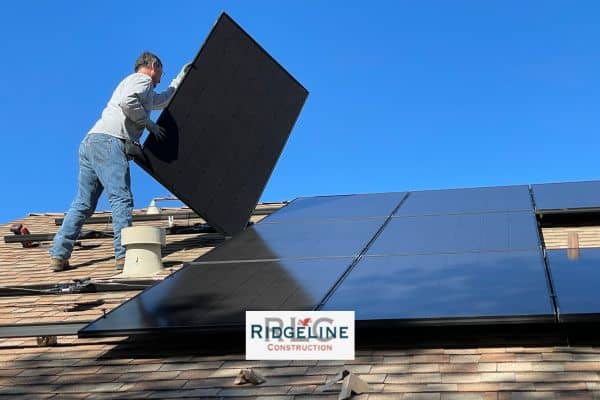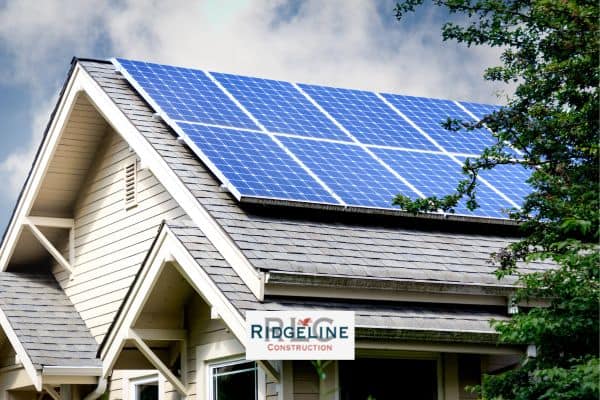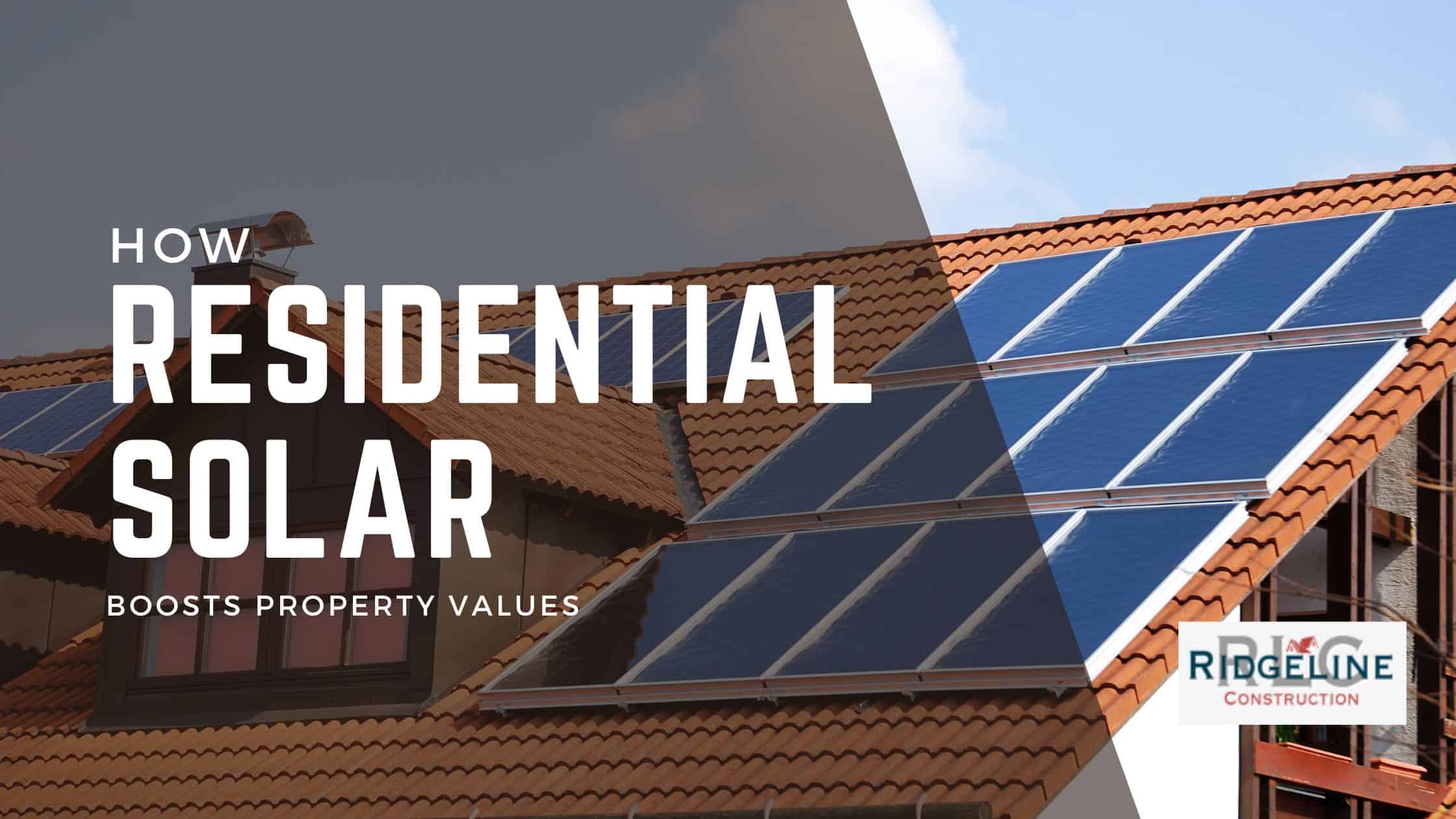-
Table of Contents
- How Solar Panels Can Increase Your Home’s Value in Florida
- The Benefits of Installing Solar Panels on Your Home in Florida
- How Solar Energy Can Help You Save Money in Florida
- The Pros and Cons of Investing in Residential Solar in Florida
- How to Choose the Right Solar Panel System for Your Home in Florida
- Conclusion
How Solar Panels Can Increase Your Home’s Value in Florida
If you’re a homeowner in Florida, you may wonder how solar panels can increase your home’s value. The answer is simple: solar panels can add significant value to your home in terms of energy savings and resale value.
Solar panels are an excellent way to reduce your energy costs and increase the resale value of your home. Studies have shown that homes with solar panels can sell for up to 4.1% more than comparable homes without solar panels. This is because solar panels are a desirable feature that can help reduce energy costs and increase the home’s overall value.
Overall, solar panels can be an excellent investment for homeowners in Florida. Solar panels are worth considering if you’re looking for a way to add value to your home.
The Benefits of Installing Solar Panels on Your Home in Florida
Installing solar panels on your home in Florida is a great way to reduce your energy costs and help the environment. Solar energy is a clean, renewable energy source that can provide you with a reliable source of electricity. With the right system, you can save money on energy bills and reduce your carbon footprint. Here are some benefits of installing solar panels on your home in Florida.
First, solar energy is a clean, renewable energy source. Solar panels capture the sun’s energy and convert it into electricity. This means you can reduce your reliance on fossil fuels and help reduce your carbon footprint. Additionally, solar energy is free and abundant, so you won’t have to worry about running out of energy.
Second, installing solar panels on your home in Florida can help you save money on your energy bills. Solar energy is a cost-effective way to generate electricity, and you can save money on your energy bills by using solar energy instead of traditional sources of electricity. Additionally, many utility companies offer incentives for homeowners who install solar panels so that they can save even more money.
Third, solar energy is a reliable source of electricity. Solar panels are designed to capture and convert the sun’s energy into electricity, so you won’t have to worry about power outages or other disruptions. Additionally, solar energy is available all day, every day, so you can count on it to provide you with a reliable source of electricity.
Installing solar panels on your home in Florida is a great way to reduce your energy costs and help the environment. With the right system, you can save money on your energy bills and increase the value of your home. Additionally, solar energy is a clean, renewable energy source that can provide you with a reliable source of electricity. If you’re looking for a way to reduce your energy costs and help the environment, installing solar panels on your home in Florida is a great option.

How Solar Energy Can Help You Save Money in Florida
If you live in Florida, you know that the Sunshine State is known for its beautiful weather and abundant sunshine. With so much sunshine, taking advantage of the natural energy source and using solar energy to power your home makes sense. Solar energy is a clean, renewable energy source that can help you save money on energy bills.
Solar energy is a great way to reduce your energy costs in Florida. Solar panels absorb the sun’s energy and convert it into electricity. This electricity can then be used to power your home, reducing your reliance on traditional energy sources like coal and natural gas. By using solar energy, you can lower your energy bills by up to 50%.
In addition to saving money on your energy bills, solar energy can also help you save money on taxes. The federal government offers a tax credit for homeowners who install solar panels. This tax credit can be up to 30% of the cost of the solar system, making it an even more attractive option.
Solar energy is also a great way to reduce your carbon footprint. Solar energy does not produce emissions, so it is a clean energy source that helps reduce air pollution. This can allow you to do your part to protect the environment and lessen your impact on climate change.
Solar energy is an excellent option if you’re looking to save money and reduce your environmental impact. With the tax credits and potential savings on your energy bills, solar energy can be a great way to save money in Florida.
The Pros and Cons of Investing in Residential Solar in Florida
Investing in residential solar in Florida can significantly reduce your energy costs and help the environment. However, it is essential to understand the pros and cons of such an investment before deciding.
Pros
The most obvious benefit of investing in residential solar in Florida is the potential to save money on your energy bills. Solar energy is free and renewable, meaning that once you have installed the system, you will no longer have to pay for electricity. Additionally, the state of Florida offers several incentives and tax credits to help offset the installation cost.
Another benefit of residential solar in Florida is that it is an environmentally friendly option. Solar energy does not produce emissions, meaning it does not contribute to air pollution or global warming. Additionally, solar energy is a renewable resource that will never run out.
Cons
The installation cost is the main downside of investing in residential solar in Florida. Solar panels and other equipment can be expensive, and the installation cost can be even higher. Additionally, the cost of maintenance and repairs can add up over time.
Another potential downside of residential solar in Florida is that it is unreliable. Solar energy depends on sunlight, meaning it may not be available during cloudy or rainy days. Additionally, solar power is not always available at night, meaning you may need to supplement your energy needs with other sources.
Overall, investing in residential solar in Florida can significantly reduce your energy costs and help the environment. However, it is essential to understand the pros and cons of such an investment before deciding.
How to Choose the Right Solar Panel System for Your Home in Florida
Choosing the right solar panel system for your home can be a daunting task. Here are some tips to help you make the right decision.
First, consider your energy needs. How much energy do you use in your home? Do you have unique energy needs like a pool or hot tub? Knowing your energy needs will help you determine the size and type of solar panel system you need.
Next, consider the type of solar panel system you want. There are two main types of solar panel systems: grid-tied and off-grid. Grid-tied systems are connected to the power grid and can provide energy to your home when the sun isn’t shining. Off-grid systems are not linked to the power grid and require a battery to store energy when the sun isn’t shining.
Finally, consider the cost of the system. Solar panel systems can be expensive, so it’s essential to do your research and compare prices. You may also be eligible for state and federal tax credits and other incentives that can help offset the cost of the system.
Choosing the right solar panel system for your home in Florida can be daunting. However, by considering your energy needs, the type of system you want, and the cost of the system, you can make an informed decision that will help you save money and reduce your carbon footprint.

In summary, residential solar can be an excellent investment for homeowners in Florida. Not only does it provide clean, renewable energy, but it can also significantly boost the value of your property. With the right incentives and tax credits, you can save money on your energy bills and increase the value of your home. With the proper research and planning, residential solar can be a great way to save money and improve the value of your property.








